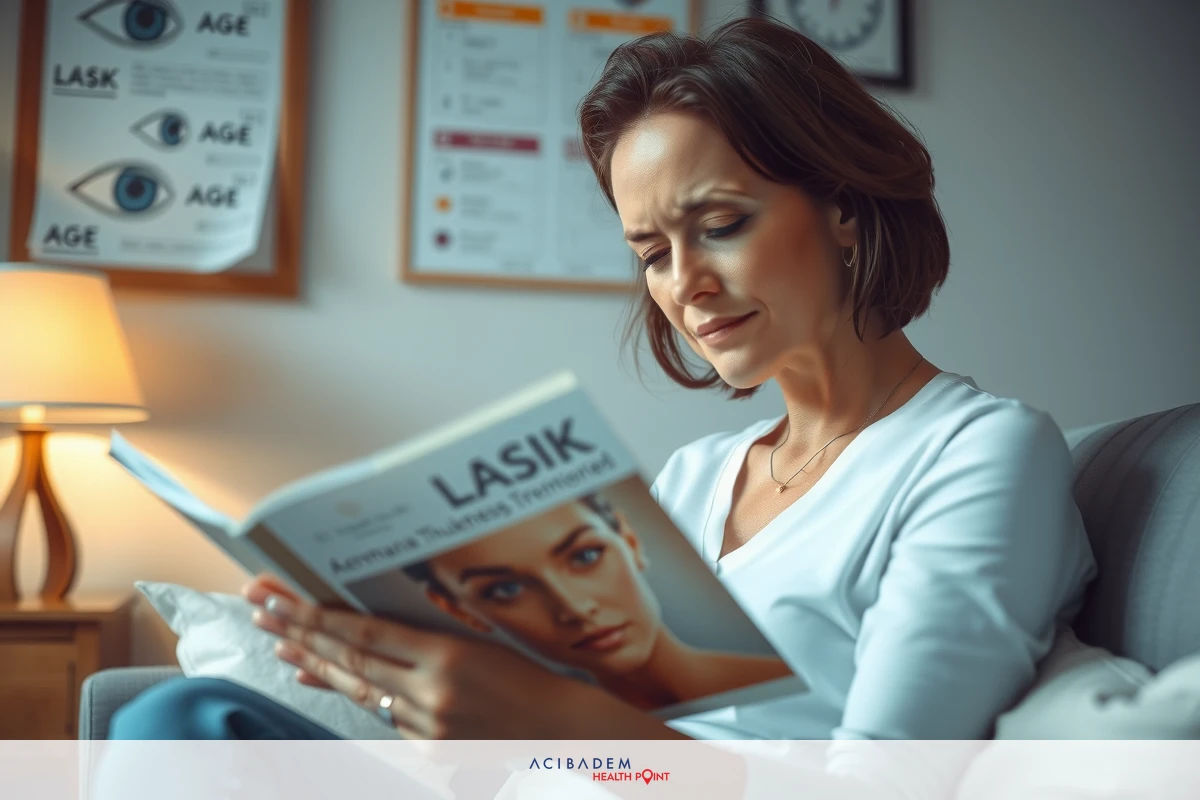How Old Can You Get LASIK Eye Surgery
How Old Can You Get LASIK Eye Surgery LASIK eye surgery, a popular option for vision correction, elicits numerous inquiries concerning its eligibility criteria. An aspect that garners substantial interest is the age limit associated with this treatment. While often deemed a solution for younger adults grappling with optical issues, it’s not exclusive to them.
Understanding insurance coverage can be equally essential when contemplating LASIK eye surgery. The process of consulting your respective company and comprehending their specific details could demystify potential financial concerns linked to the procedure. Moreover, other factors may influence one’s candidacy for LASIK eye surgery beyond just age or insurance coverage.
Recognizing these nuances offers valuable insights into whether LASIK might be an appropriate choice at any stage in life. It invites clarity on what seems opaque and encourages informed decisions to pave the path towards improved vision.
Age Limit for LASIK Eye Surgery
When it comes to LASIK eye surgery, age plays an undeniable role in determining eligibility. It’s a common misconception that this vision correction procedure is only for the younger population. However, no definitive “age limit” exists in black and white terms; instead, candidacy hinges on individual health conditions and visual stability.
LASIK eye surgery involves reshaping the cornea using laser technology to correct refractive errors like myopia (nearsightedness), hypermetropia (farsightedness), and astigmatism. While young adults often meet these criteria, older individuals can also be viable candidates if they have maintained stable vision over a significant period. To determine suitability, comprehensive pre-operative assessments are conducted by ophthalmologists who thoroughly evaluate various factors beyond just chronological age.
While youthfulness may offer certain advantages like quicker recovery times after LASIK procedures due to enhanced healing capabilities typically associated with younger bodies, mature individuals tend not to be excluded merely based on their years lived. Regular eye examinations that monitor changes in prescription strength provide indispensable insights regarding visual stability – a crucial aspect of determining candidacy for LASIK eye surgery.
However, there are notable exceptions where age does influence the decision-making process of undergoing LASIX treatment. For instance, patients under 18 are seldom considered suitable as their eyes might still be evolving leading to fluctuating prescriptions which could compromise surgical outcomes. Similarly at the other end of spectrum – those above 60 might face increased risks related to age-related ocular issues such as cataracts or dry eyes conditions which could contraindicate or complicate their ability undergo successful LASIK surgeries.
With all said though – remember that each case is unique hence consulting with experienced healthcare professionals remains paramount when considering any medical intervention including potentially transformative ones such as LASIK eye surgeries.
Factors to Consider
LASIK eye surgery is a life-altering procedure that demands careful consideration of several factors. Determining suitability extends beyond simple age eligibility, encompassing multiple elements that contribute to the overall candidacy for this transformative treatment.
Health Status

The state of an individual’s health, particularly their ocular health, significantly influences candidacy for LASIK eye surgery. Conditions such as severe dry eyes or glaucoma may deter patients from undergoing the procedure due to potential complications or contraindications.
Vision Stability
A consistent eyeglass prescription over at least one year demonstrates vision stability – a critical requirement before considering LASIK. Fluctuating prescriptions might indicate ongoing changes in vision, thus potentially compromising surgical outcomes.
Corneal Thickness
LASIK involves reshaping the cornea; therefore, adequate corneal thickness is crucial to ensure successful results and minimize risks associated with thinning post-procedure.
Lifestyle Considerations
Certain occupations or hobbies could be more suited towards different types of corrective procedures. For instance, individuals engaged in high contact sports may benefit more from alternative treatments like PRK (Photorefractive Keratectomy).
Remember – while these are some general guidelines it always remains vital to consult with experienced healthcare professionals who can provide personalized advice based on comprehensive assessments and discussions around expectations and long-term goals related to vision correction.
Consulting Your Insurance Company
Navigating the labyrinth of insurance coverage for medical procedures such as LASIK eye surgery can seem daunting. However, it’s a critical step that should not be overlooked in your journey towards better vision. Understanding the nuances of your specific insurance policy can illuminate potential costs and alleviate financial concerns associated with this procedure.
Insurance companies delineate their coverage policies based on their assessment of medical necessity. In many cases, LASIK eye surgery is categorized as an elective procedure rather than a medically necessary one, which might influence the extent of coverage offered. To gain clarity about your policy’s stance on LASIK eye surgery and any associated out-of-pocket expenses you might need to shoulder, initiating a consultation with your insurer is paramount.
When consulting with your insurance company, it’s advisable to prepare a list of pertinent questions ahead of time. Inquire about specifics like deductibles that apply to surgeries or if there are preferred providers within network who specialize in LASIK procedures which could potentially lower costs for you. Also explore whether there are provisions for financing options or discounts available via partnerships with certain healthcare providers or even through employer-sponsored health plans.
Always remember – every insurance plan varies significantly hence obtaining clear information from reliable sources remains integral when planning any major healthcare decision including ones related to vision correction treatments like LASIK eye surgeries.
How Old Can You Get LASIK Eye Surgery : Frequently Asked Questions
What is the minimum age to undergo LASIK eye surgery?
Typically, individuals must be at least 18 years old to consider LASIK eye surgery. This is because younger eyes might still be changing and evolving, potentially leading to fluctuating prescriptions that could affect surgical outcomes.
Can I get LASIK if I'm over 60 years old?
While there's no strict upper age limit for undergoing LASIK eye surgery, patients above 60 may face increased risks related to age-related ocular conditions such as cataracts or dry eyes. These factors can complicate the procedure and influence its success rate.
Will my insurance cover the cost of LASIK eye surgery?
Coverage varies greatly among different insurance providers. Many categorize LASIK as an elective procedure rather than a medically necessary one, which could affect coverage levels. It's crucial to consult your insurer for specific details regarding your policy.
How long should my vision prescription be stable before considering LASIK?
A consistent eyeglass prescription for at least one year prior to surgery demonstrates vision stability – a critical requirement before considering this treatment option.








